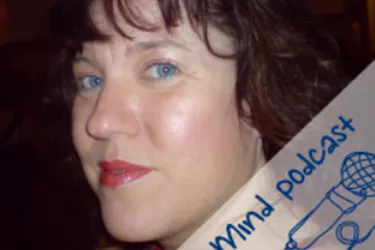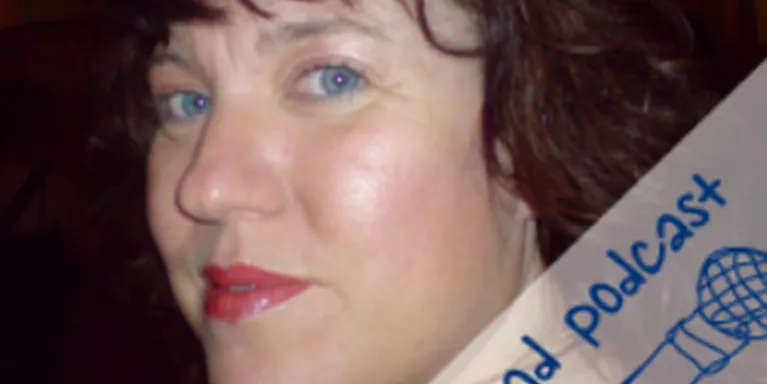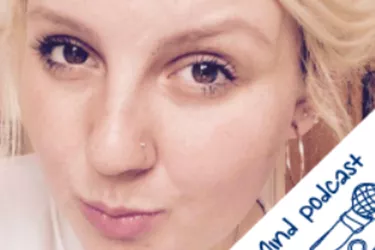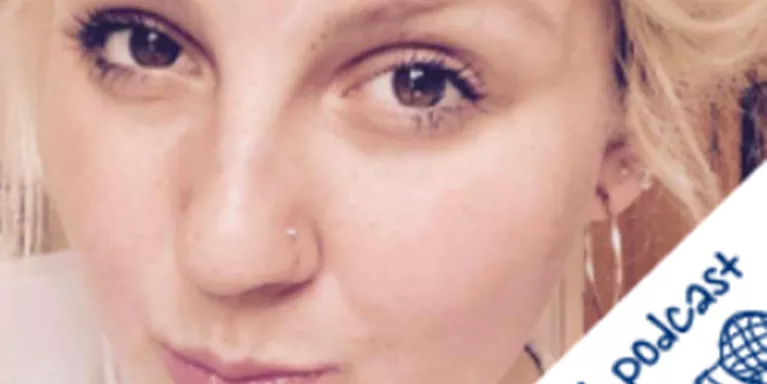Mind podcast - Food and mood
Tim talks about the steps he's taken to manage his mood without medication.
For more info on some of the issues covered in this podcast, click below:
- Information on how food can affect your mood
- What is Cognitive behavioural therapy (CBT)?
- About depression
- Tips for getting better sleep
Hello my name is Tim. I’ve suffered from some mental health issues, particularly after the age of 30, primarily with depression which I’ve, you know, worked through over a number of years.
And one aspect of that has been taking care of my diet, but looking after my diet and what I ate, and sort of seeing how what I ate fed into how I felt day to day. It was a big…quite an important step for me.
So I guess today, is the chance for me to just talk about practical things that I do day to day which sort of have helped me, you know, over the years to achieve a better level of mood, which, you know, I feel I feel I’ve got at the moment really.
Having taken medical advice, my depression was not really severe enough that I needed to go onto medication and I think, probably like a lot of people, I felt I wanted to avoid going onto medication if that was possible and, you know, I had some good conversations with the GP about that.
Obviously medication is entirely appropriate for some people, but we agreed it probably wasn’t for me and I also did some work around something called CBT, Cognitive Behavioural Therapy, as well.
And, it was just really looking through the various lifestyle factors and food is obviously a big one and I hadn’t really thought about it before that. We’re talking in my 30s here and I had never really considered it.
"I’d always thought of food as obviously nutrition, but also probably without realising it also as a kind of comfort thing and as an emotional support."
I guess over a long period of time what I found is that a lot of the effects are not quick fixes. For example, shifting away from eating a lot of processed food, which I’ve done. As I say, I’m not perfect by any means, but I do eat a lot less now and I do prepare a lot more of my own food so I know what goes in it.
Now that in the short term has no impact at all in mood. You don’t suddenly become, you know, calmer or happier or whatever, or that’s what I found from eating, but it’s a very subtle thing over a period of say weeks or even months that gradually I just felt a bit better about myself. And I think my mood stabilised a little bit. But it took, you know, weeks.
"It was a subtle process, it’s not like taking a tablet and suddenly one feels different."
It was something that as I prepared more of my own food, it took more…I was just more aware of what I was putting into my body and how it might affect me day to day. That my mood seemed to, seemed to improve.
I think it’s probably fairly obvious to most people that not eating too much junk food is a good thing from a health perspective, but what I’ve also found in terms of, more specifically, of mood, is that foods that tend to release their energy slowly seemed to help.
So things like, at breakfast time, things like porridge is good, good for the diet as well because you feel full for a long time. And for me, because I like to go and work out, at breakfast time things that have a bit of protein in as well, so eggs for example which are, you know, good fat. Not unhealthy.
"Baked beans, particularly the low salt and low sugar baked beans. They’re quite good."
It’s because something like that, you know, scrambled egg and baked beans first thing in the morning is a nice, nutritious, protein-rich breakfast. That will keep me full then until lunchtime.
Those sorts of slow release foods tend to stop me over-eating and I think very often with snacking, what I’d tend to do is snack on sugary foods. So if I don’t feel the need to snack at all then I don’t feel the need to go and buy sugary foods.
And again for lunch I tend to try to avoid things like white bread because again that’s quite quick release of energy so again, I’ll try and have things like salads and oily fish, that sort of thing, for lunch. And then evening meals, as I say, the big shift for me that occurred, I was making a lot of stuff from scratch which then you know what’s going into it and you’re just able to control a little bit more of what goes in and just be mindful of what I was cooking.
In terms of dishes that I like to prepare, tends to be quite a lot of spicy food, so curries, chilli con carne, things like that, so very often they have the kind of same basic base of things like chillies and garlic and so on and then, you know, I’ll add other things to it.
"But I kind of improvise a little bit. And that’s part of the fun of cooking for me, if you like, is not having to follow a rigid recipe."
But I think the good thing there was when I was, because I was just cooking for myself and for my partner, if you like, if things went wrong there wasn’t too much pressure, you know, it was kind of like yes okay, let’s have a bit of fun and if it doesn’t work out it doesn’t work out. Fine, you know, we’ll eat it and we’ll learn for the next time. So a lot of trial and error I’d say with cooking as well, which has made it more fun.
Perhaps one other thing I’d touch on that I do try to do now, I certainly can’t do it every day, but I do try to do more now, is eat less on my own and actually eat with other people more often.
Because I think, certainly when I was working in a very busy office, it became the norm that I would just sort of shovel down a sandwich in front of my computer screen whilst checking e-mails or, if it was a nice day, maybe have ten minutes in the park.
And it wouldn’t be a social thing. And I think, I’ve tried now more to try and say to someone oh let’s meet up over lunch or, oh we can catch up over a bit of food and that feels a lot healthier.
You can kind of combine two things, two pleasures really, you know, actually eating but also chatting to people. So I found that making mealtimes more social has also helped.
"The other one I was going to throw in which I guess we’ve not really mentioned so far is sleep."
Because again I think, for me, eating sensibly and exercising, I also found my sleep pattern was much, much better. Again again, over time, I think that had a very positive effect on mood, that again, because I’d slept properly I’d be a bit calmer in the daytime and also wouldn’t feel the need first thing in the morning to have loads of coffee, because frankly I was shattered a lot of the time because I’d not been sleeping well.
Oh let’s have a double expresso and that will sort me out, and of course that led to another double expresso and so on.
Because it’s then you’re kind of on the peaks and troughs of caffeine throughout the day.
So sleep is another one that I found helped a lot and eating a decent meal not too late in the evening I found does help me sleep properly as well. And that again, feeds through into the next day clearly.
So I think writing stuff down, for example, caffeine use, is really good and then just trying to moderate it really, particularly in the evenings.
Try not to have processed food too much. Try and prepare as much as possible yourself because you know what goes into it. So rather than having to read lots and lots of labels and work out what things contain, if you just cook it yourself you know.
I know if I make a curry it just contains the spices that I’ve put in with some fresh chicken and some fresh vegetables, that’s it, you know, there’s no nasties in there.
Because I’m putting anything nasty into it. So I think with cooking, cooking for myself has helped and, as I say, from my own personal perspective as well, just the process of cooking I found quite therapeutic as well.
"So it’s not just the eating. The actual preparing it and starting to enjoy preparing food to actually cook was actually pleasurable."
I think in terms of the balance of diet, I think most people kind of know really what they should be doing which is eating plenty of fresh fruit and vegetables and stuff.
I think if it all felt like too much like hard work and too serious you’re not going to do it, you’re not going to stick to it, and that’s the thing about doing an extreme diet. I think it would just feel like you’re punishing yourself almost.
So I think it’s got to feel, you know, being kind to yourself really, otherwise you won’t stick to it. The fun bit is an important thing that this can all get a bit serious and worthy and seem a bit hard work and so on and it needn’t.
You know, it can be fun. I don’t know, I think it’s something that we’ve lost a little bit in this country maybe is people cooking and eating together, which doesn’t happen perhaps as much and it’s nice. It’s a pleasure to cook.
Something that, again, a recipe, you know, a dish that I know how to cook so it’s not very stressful to cook it, with other people around chatting to them, seeing how their week’s been, that sort of thing, that’s fun, that’s relaxed.
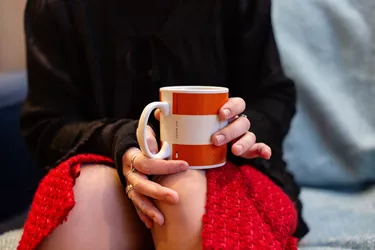

Information and support
When you’re living with a mental health problem, or supporting someone who is, having access to the right information - about a condition, treatment options, or practical issues - is vital. Visit our information pages to find out more.
Share your story with others
Blogs and stories can show that people with mental health problems are cared about, understood and listened to. We can use it to challenge the status quo and change attitudes.












